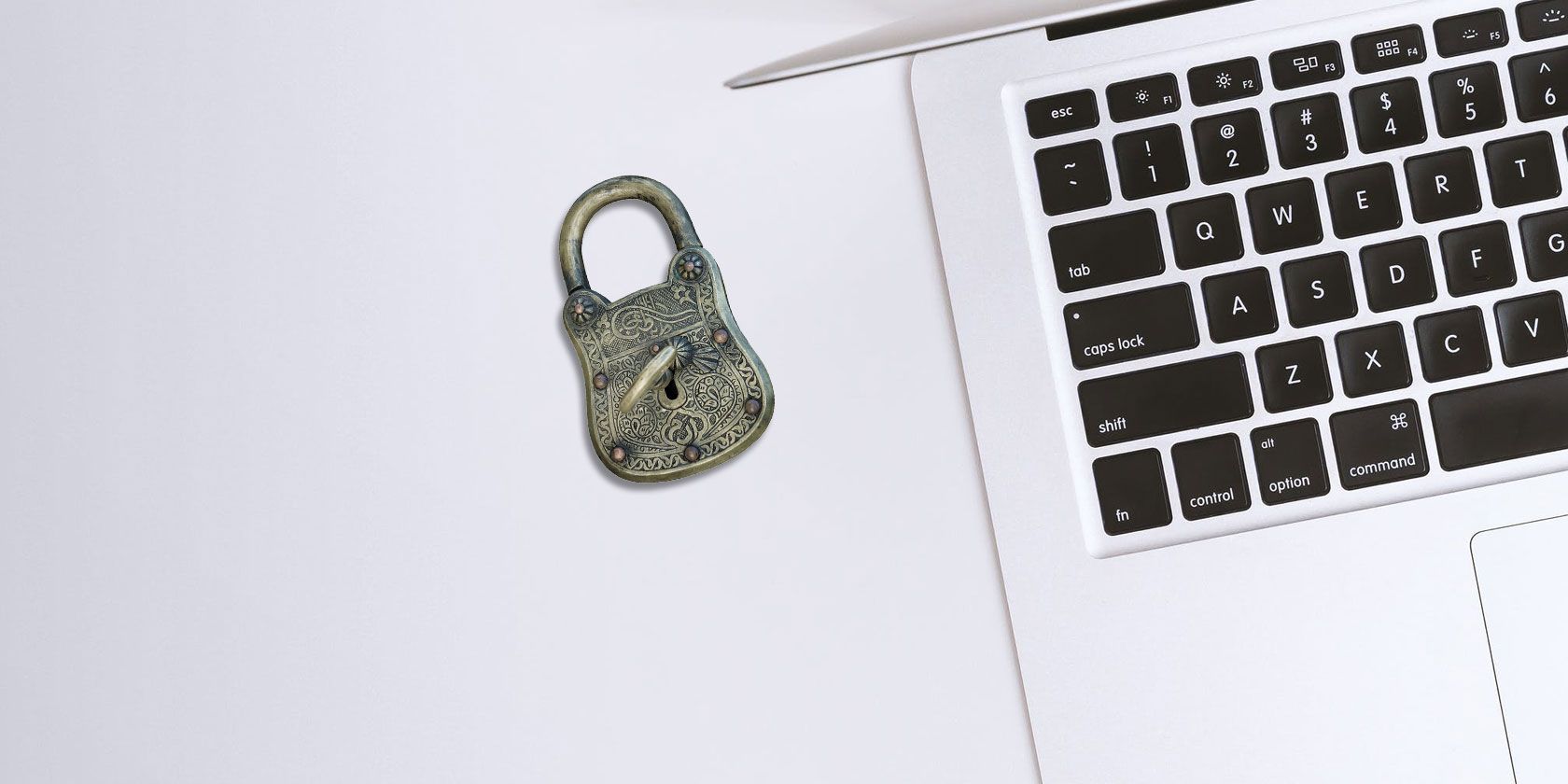
Just bought a new notebook or desktop computer and have concerns about online security? Worried about losing valuable study time to viruses and other online infections?
Staying safe and secure online is simple, as long as you take the right precautions. Besides installing an online security or antivirus suite, follow these steps for safer computing.
1. Catch Phishing Emails With a Spam Filter

Over half of all emails are spam, and of those, 50 percent are carrying malicious attachments. That’s an unbelievably powerful method of delivering of malware infections to computers: just via email. As such, it’s vital that you take steps to ensure that the emails that make it into your inbox are safe.
You don’t have any control over the emails that are sent to you. Sadly, once your email address ends up in a database, it’s a free-for-all as far as the scammers are concerned. They’re going to target you with as much rubbish as possible, hoping that you click, and they get lucky.
Phishing emails, which typically strongly resemble official emails and include a link to a spoof website that fools you into entering your personal details, are particularly concerning. While browser based email solutions like Gmail and Outlook are good at blocking these, they’re not perfect.
As such, it’s worth using an email client and employing a spam filter to help in blocking these messages. Don’t leave anything to chance. Oh, and don’t open attachments from unrecognized email accounts!
2. Start Using Encrypted Email
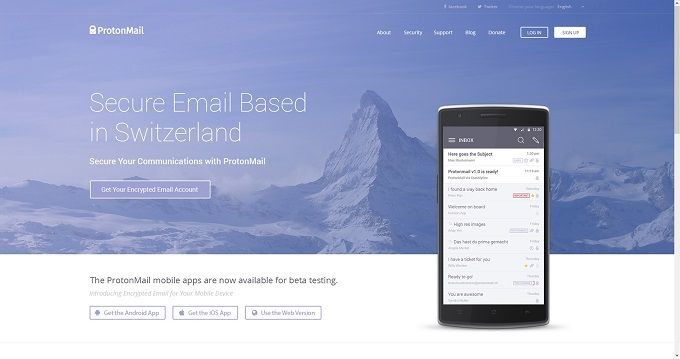
Using Gmail or Outlook, or the email service your ISP enforces is all very well, but it’s probably not secure. Having a username, password, perhaps two-factor authentication and a HTTPS connection is great, but these days, it’s not enough.
We know that Gmail displays adverts, and these are chosen by Google based on the contents of your inbox. So, what can you do about this? Well, the smart money is on using encrypted email.
At one time, this meant you and the recipient both being signed up to the same email service. Fortunately, this is no longer the case.
Several encrypted email providers are available, each offering varying levels of security. You should consider each service on merit, if encrypting your email sounds like a secure option. Just be sure to use a secure password to decrypt your messages!
Of these top options, ProtonMail is often cited as the very best encrypted email provider. However, we’re also fans of Disroot, which combines free encrypted email with a secure cloud drive. This includes an online office suite.
3. Only Use Trusted Browsers and Extensions
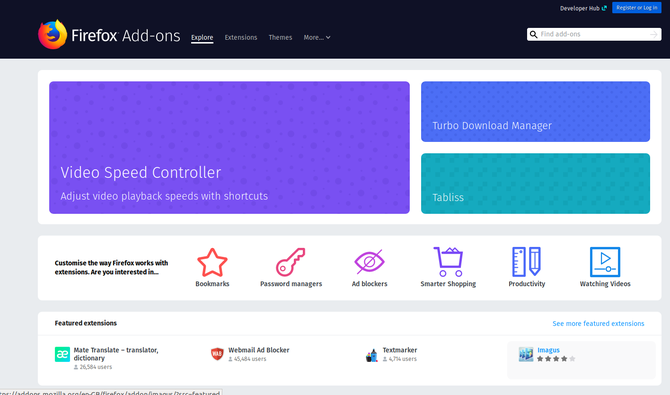
Staying safe online means being able to browse the web without risk of danger from malware, scammers, ransomware, and all of the other risks.
Besides email, most issues threatening your online security come via your browser. As such, it is vital to ensure that you’re using a browser that receives regular updates. Mozilla Firefox is a good example of a reliable browser that is constantly updated thanks to the hard work of its development team.
You might also rely on Google Chrome, although the privacy aspects of this browser with regard to the way in which Google tracks your behavior may well discourage you.
But it doesn’t end with the browser.
A wide selection of extensions (also known as “add-ons”) are available for you to install, but you shouldn’t just go ahead and install what looks good. Instead, narrow your selection, researching the reputation of the extensions or add-ons; ensure the choice you make is good. Don’t simply install the first add-ons that does the job you’re looking for.
Limiting your use of add-ons to specific purposes from reputable developers is a wise tactic.
4. Check Links Before You Click
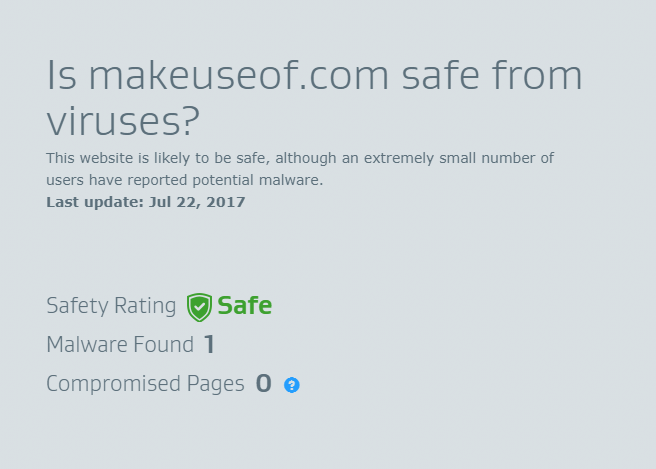
Once upon a time, the web was more or less safe. Sure, there were scam websites, malware-loaded adverts, dangerous popups, and insecure browsers, but…
Okay, fair point: the web has almost never been safe. Which is why link checking tools are so vital. It is a source of constant amazement that so few people take the time to install a link checking tool. Many security suites include these, and they’re even available as browser extensions.
What better way to stay secure online than to have a tool that quickly checks if the link you’re about to click is safe?
Don’t leave your homepage without a link checker. Don’t want to use a browser extension? These link checking sites can help.
5. Browse via Proxy Server or VPN
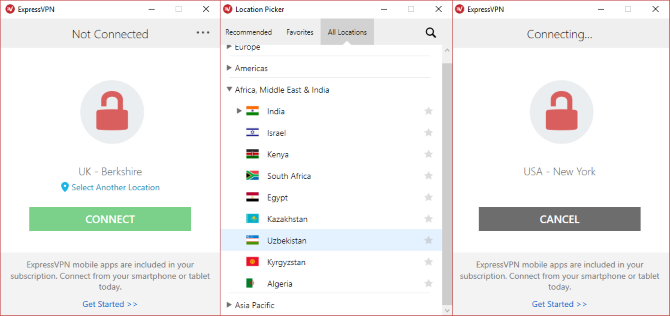
If you want to access the web without being seen online—perhaps to avoid identity theft—then you should consider a proxy server, or a VPN (Virtual Private Network).
A proxy server (in which you access a website via an anonymizing service—the proxy), will also let you access restricted or censored information, prevent any sort of profiling of your online activity, and enable you to conduct sensitive research. You should also be able to engage in anonymous messaging, should that be necessary.
While most of these uses for a proxy server might seem more suited to freedom fighters in oppressive states, awareness of how privacy is breached on a minute-by-minute basis is useful.
However, it is worth considering a VPN if you’re planning on regular proxy use. A VPN employs encryption (typically 256-bit AES), obfuscating your online activity from outside observers. These days, it’s non-negotiable if you want improved security and privacy on the web.
Not sure which VPNs are reputable? We highly recommend ExpressVPN, HotSpot Shield, and CyberGhost.
Don’t Just Install a Security Suite: Think “Secure”
So many people install security software on their computers and think that the job is done. But online security is about far more than viruses and malware.
That is why installing an antivirus tool or security suite is just the first step in keeping your PC secure. After that, it’s about developing good habits and awareness. To repeat, you should:
- Use a spam filter
- Rely on email encryption
- Switch to a trustworthy browser
- Check links before clicking
- Browse the web via proxy server or VPN
Looking for a security suite to get started with? We’ve sorted out the best security software to help you tighten up your online security.
Read the full article: Antivirus Software Isn’t Enough: 5 Things You Must Do to Avoid Malware
from MakeUseOf https://ift.tt/2OR6HT0

No comments:
Post a Comment